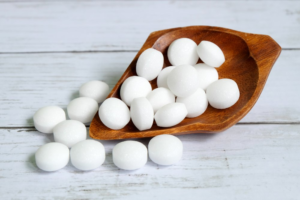Wasps in your Home
October 3, 2018Winter Prep Time has Begun for Squirrels
October 18, 2018DID YOU KNOW?
- Mothballs are classified as a pesticide and used to control moths, silverfish, and other fiber pests in wool and other natural fiber clothing and materials.
- Mothballs should only be used as specified on the label. Their use is regulated by the U.S. Environmental Protection Agency (EPA) because they are both a poison and a contaminant.
- Mothballs are commonly made of naphthalene or paradichlorobenzene, both of which are toxic to humans and pets.
- These chemicals are solids at room temperature. They are made into round balls, flakes or cakes that slowly change to a gas and become fumes in the air.
- People are exposed to the chemicals in mothballs by inhaling the fumes. If you smell mothballs, you are being exposed to these chemicals. This can cause neurological damage, especially to smaller-bodied pets and children.
- Children or pets sometimes mistake mothballs for food or candy and eat them, which can cause serious, and even deadly, effects. If your pet or child eats mothballs, call poison control and 911 immediately.
- The chemicals in mothballs can cause reversible health effects that include headaches, nausea, eye and nose irritation, and coughing.
- Exposure to naphthalene can cause more serious effects, including hemolytic anemia.
- Naphthalene is also a possible carcinogen. Extended exposure to mothballs can also cause liver and kidney damage.
SPECIAL NOTE:
Mothballs should not be placed in closets or attics.
Vapors from the mothballs escape into the air and can cause respiratory problems.
High levels of the chemical fumes can accumulate in low lying areas. The fumes are heavier than air and will accumulate along floors posing a danger to small children and pets.
Some car enthusiasts recommend putting mothballs in your engine compartment to avoid rat infestations. This is dangerous and not recommended. It may not The fumes can also enter the cab of the car through the ventilation system and expose you and your family to the toxins.
Do Mothballs Deter Squirrels and Bats?
As a short answer, No!
The use of mothballs in outdoor areas to repel rodents, squirrels, bats, snakes or other wildlife is largely ineffective for this use. Using them has a number of drawbacks for your home and family:
- They can contaminate soil and water
- They can travel through a central air system from the attic or basement into your home
- They can be illegal
- They can hurt your pets or children
- Most of all, they don’t work!
Call us instead to discuss a better option for removing insects and small animals from your home and yard. We can help you keep your home pest and pesticide-free!


